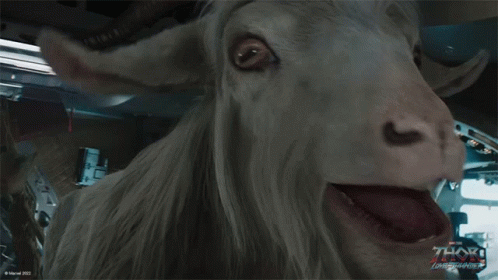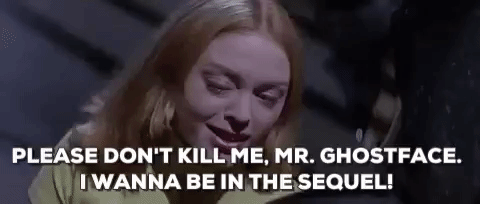This article on ‘The Problems With Meta Humor In Modern Movies, TV Series and Video Games’ was available earlier through the Gamerbraves Newsletter. Sign up for free to gain access to more articles about news and trends in the gaming industry and community.
Original Article:
I was watching Disney’s new Pinocchio remake and while the film felt more wooden than its main character, there was a certain line that stuck out to me. At one point in the first act, Jiminy Cricket turns to the camera and says:

“Of course, I’m a talking cricket so I’m not one to pass judgment on what’s real”
From Deadpool to Adventure Time it seems that every series needs to have a moment where everything pauses so the characters can turn to the camera and comment on just how weird the very show itself is. These kinds of meta jokes have gradually appeared throughout the 2010s, whether they be films, video games, or TV series making use of them.
Sometimes, they can be hilarious like Hulk Hogan telling Gremlins 2 to turn Gremlins 2 back on but other times it can be really obnoxious, and even detrimental to the title. The screaming goats in Thor: Love and Thunder are a testament to that.

What Is Meta Humour
We should first clarify what we mean by meta or self-referential humor. This is a type of humor based on the idea that the viewer is aware of the cultural zeitgeist around the content and joke about it within the product.
It should be noted that while breaking the 4th wall is a kind of meta-humor: seeing characters point out that they’re characters in a story, it’s not the only kind. In general, any humor that references tropes, memes, trends, or cliches linked to the product can be attached to this type of comedy.
The Trend of Meta Humour

Meta writing has been around for decades and several large franchises have made good use of it such as Scream, Shrek, Ratchet, and Clank, and Metal Gear Solid but its current trend of popularity really started with two movies: The Avengers and Frozen, and they actually used their humor well.
A lot of this is down to when they premiered. At that time superhero movies were seen as overly dark and taking themselves too seriously so jokes like Hulk throwing Loki around mid-evil monologue were pretty funny. Likewise, Disney’s animated movies had been declining in popularity for a while partly because classic fairy tale stories were seen as outdated so when Frozen has Elsa tell Anna she can’t marry a guy she’s only met for a few hours, it felt refreshing.
Both films used meta-humor effectively. At the time it was something different that helped develop the characters and establish the world in addition to being well-timed jokes and when serious moments needed to come out, the jokes took a backseat. Of course, both were incredibly successful, especially The Avengers, directed by Joss Whedon whose trademark ‘Whedon speak’ would serve as the template for meta jokes in many future titles, for better or worse.
The Problem With Meta Humour

Nowadays it seems like every large franchise wants to make meta jokes from Marvel to Star Wars, to Sonic The Hedgehog. Even the new Dungeons and Dragons movie seems to want to make a point of how silly tabletop RPGs can be.
Aside from it getting pretty repetitive, the big issue is that with so many products trying to be meta, it feels like there are almost no mainstream franchises that actually want to take themselves seriously. Marvel is the standout example here, but there seem to be so many new entries into classic IPs that break any dramatic tension by letting the characters wink at the audience and letting them know how odd this is.
An example of this is the controversial trailer for the video game Forspoken which was released back in August. What is being billed as this heavy fantasy game is advertised with this:
A beautiful and cruel new land? Twisted monsters? An array of magical abilities? Sentient jewellery!?
Welcome to the world of #Forspoken. pic.twitter.com/46diiLnQ7M
— Forspoken (@Forspoken) August 8, 2022
Yes, the trailer doesn’t represent the actual game, but it’s still a first impression for players that doesn’t exactly put the best foot forward. If the characters keep commenting on how hard it is to take the premise seriously, then why should people care enough to actually take them seriously? It sometimes feels like these works are embarrassed by themselves.
All this being said, there are still a lot of modern media that can use meta-humor well. Undertale, The Mitchells Vs The Machines, and No More Heroes 3 are filled with references and 4th wall breaks. These jokes however are (mostly) well-timed and naturally interwoven throughout the story. Also, when the characters are facing an antagonist, even with how strange everything is, the emotions are authentic, now is not the time for the jokes and it feels like the writers know that.
Closing Thoughts (that means this is the end of the article *wink *wink)
I can understand why meta humor in movies and games is so big. General audiences are becoming far more media savvy and will more easily pick up on cliches or tropes that reoccur in the media they consume. Looking like you are in on the joke with self-aware humor can be an effective way of connecting better with audiences but it shouldn’t come at the expense of immersion and actual emotion.
Going back to Pinocchio, despite the original movie being over 80 years old it still holds up today thanks to its sense of wonder, enchantment, and not being afraid to be both dark and silly. It brought viewers to a magical world where foxes could talk and puppets came to life and trusted that they would get invested in these elements without them needing to be pointed out.
So much of the meta humor in movies nowadays seems to come from a fear of sincerity. That if the story is “too weird” or the heavy scenes are “too intense”, audiences won’t like it so we need to throw in a self-aware quip, even when so many works have proven that not to be the case.
Would the Dune movie from the last year, which plays the material completely straight, be as highly regarded if Paul suddenly said “hey we’re like space wizards fighting over pieces of sand, crazy right?!” Meta humor can be great but implemented badly and it can be unfunny at best and distracting at worst.










![[EXCLUSIVE] Inside Japan’s Indie Game Revolution – An Interview with BitSummit Organizer Masahiko Murakami](https://cdn.gamerbraves.com/2025/05/BitSummit-Orgainzer_Interview_FI-360x180.jpg)
![[EXCLUSIVE] The Art of Adaptation: Developer Interview Details the OVERLORD Mobile RPG Lord of Nazarick](https://cdn.gamerbraves.com/2025/05/Lord-of-Nazarick_Interview_FI-360x180.jpg)
![[EXCLUSIVE] Taking Gundam in Bold New Directions – Interview with GQuuuuuuX Director Kazuya Tsurumaki](https://cdn.gamerbraves.com/2025/04/Kazuya-Tsurumaki_Interview_FI-1-360x180.jpg)


![[SEA Exclusive] From Shadows to Shipwrecks – Jennifer English Talks About Bringing Emotional Depth to Clair Obscur: Expedition 33](https://cdn.gamerbraves.com/2025/04/Clair-Obscur-Jennifer-English_Interview_FI-360x180.jpg)

![[EXCLUSIVE] Do the Game Interview – An Intimate Look at the Challenges of Game Development](https://cdn.gamerbraves.com/2025/04/Do-the-Game_Interview_FI-1-360x180.jpg)
![[EXCLUSIVE] Interview with the Minds Behind of Den of Wolves – 10 Chambers’ New Sci-Fi Heist FPS](https://cdn.gamerbraves.com/2025/04/Den-of-Wolves_Interview_FI-360x180.jpg)










![[GUIDE] SD Gundam G Generation Eternal Unit Tier List](https://cdn.gamerbraves.com/2025/04/SD-Gundam-G-Generation-Eternal-Tier-List_Review_FI-360x180.jpg)